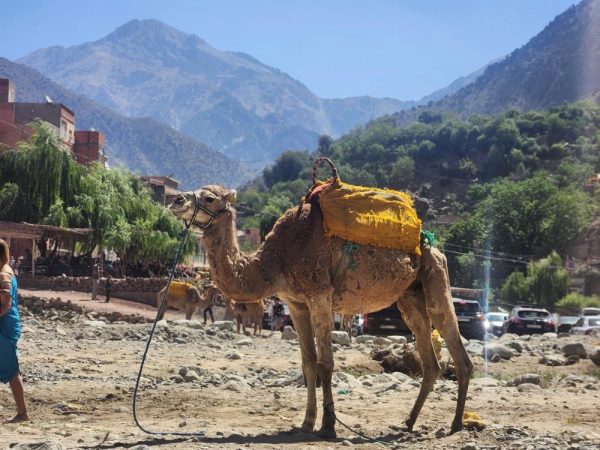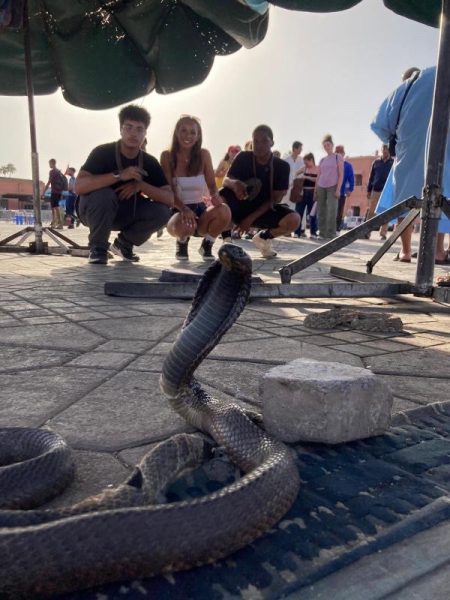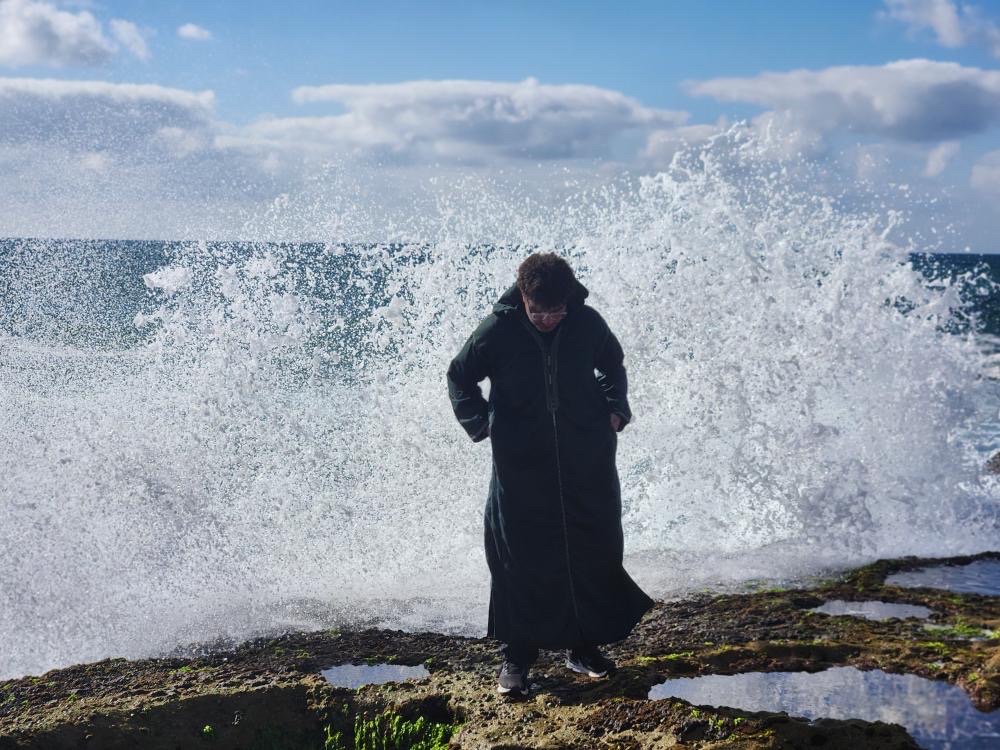From the classroom to the streets of Rabat, Morocco, this summer, Saphe Khader (12) learned Arabic through instruction and immersion through a study abroad program.
The program allowed Khader to connect with a side of his family he was previously unable to. Khader was able to explore the history of Arabic in Rabat, the capital city of Morocco.
“I chose Arabic because I am half Iraqi and I didn’t grow up learning any Arabic, and I mean I picked up some, but I didn’t grow up using the language,” Khader said. “I always felt like I couldn’t really connect with that side of my family. It was like a cultural barrier and I wanted to learn the language so I could break that barrier.”
Khader went overseas with a program called National Security Language Initiative for Youth (NSLI-Y). The program is a government-funded scholarship plan that sends students to foreign countries to be exposed to native speakers of a language.
“I did the summer program and it was seven weeks in either Rabat, Morocco or Amman, Jordan and I got sent to Rabat, Morocco,” Khader said. “It’s around four to six hours of daily instruction where you learn the language, and for our case, it was Modern Standard Arabic.

Language immersion has been found to benefit students more than classroom learning as it encourages students to think on their feet and use the language in real situations. In Khader’s case, living in Morocco gave him opportunities to practice Arabic around native speakers.
“After class, usually a good bit of us would go out to get lunch and that’s when we try to practice our Arabic and try to order completely in the language,” Khader said.
Khader is currently taking the second and final course in the AP Capstone program, AP Research, where students are able to research and analyze any topic that interests them in order to produce a final paper and presentation that serves as their AP exam. Khader was able to use his experience in Morocco to come up with his topic which involves language learning methods.
“I’m taking AP Research right now with Mrs. Young, and the research that I’m doing is how learning a language through a study abroad program is more efficient or is better at gaining language proficiency than traditional high school instruction,” Khader said. “I took Spanish 1 and 2 here at White Station, and in two months in Morocco, I doubled and tripled as much Arabic as I learned in Spanish.”
Through the program, Khader was introduced to people his age and with similar interests. He spent time outside of classes with them playing soccer, exploring the city and attending program activities.
“My favorite thing about the program is the cohort you get put with,” Khader said. “I made a great group of friends being on the program and I think had I not been with so many great people that you get to share the experience with, I wouldn’t have enjoyed it nearly as much.”

Khader’s experience in Morocco allowed him to make new connections and gave him a valuable experience pertaining to his Arabic learning. For Khader, the program has had lasting effects on his aspirations, motivating him to pursue Arabic more in depth.
“I want to continue studying Arabic as a language in college, but also, I’m actually applying to the same program again but for their year-long program,” Khader said. “If I get in, hopefully, after I graduate, I would spend a year in Morocco again and I would do a gap year.”
The program is offered to students free of charge as a way to promote cultural exchange and language proficiency. Although Khader was motivated by a desire to connect with his family culture and heritage, he recommends the program as a way to engage in learning a language even without these connections.
“[Studying abroad] is a way better way to learn a language because you get to use it everyday and you pick it up so much faster than you would think,” Khader said.




































